Interview with Jenni Toivoniemi: “I always try to walk towards the light”
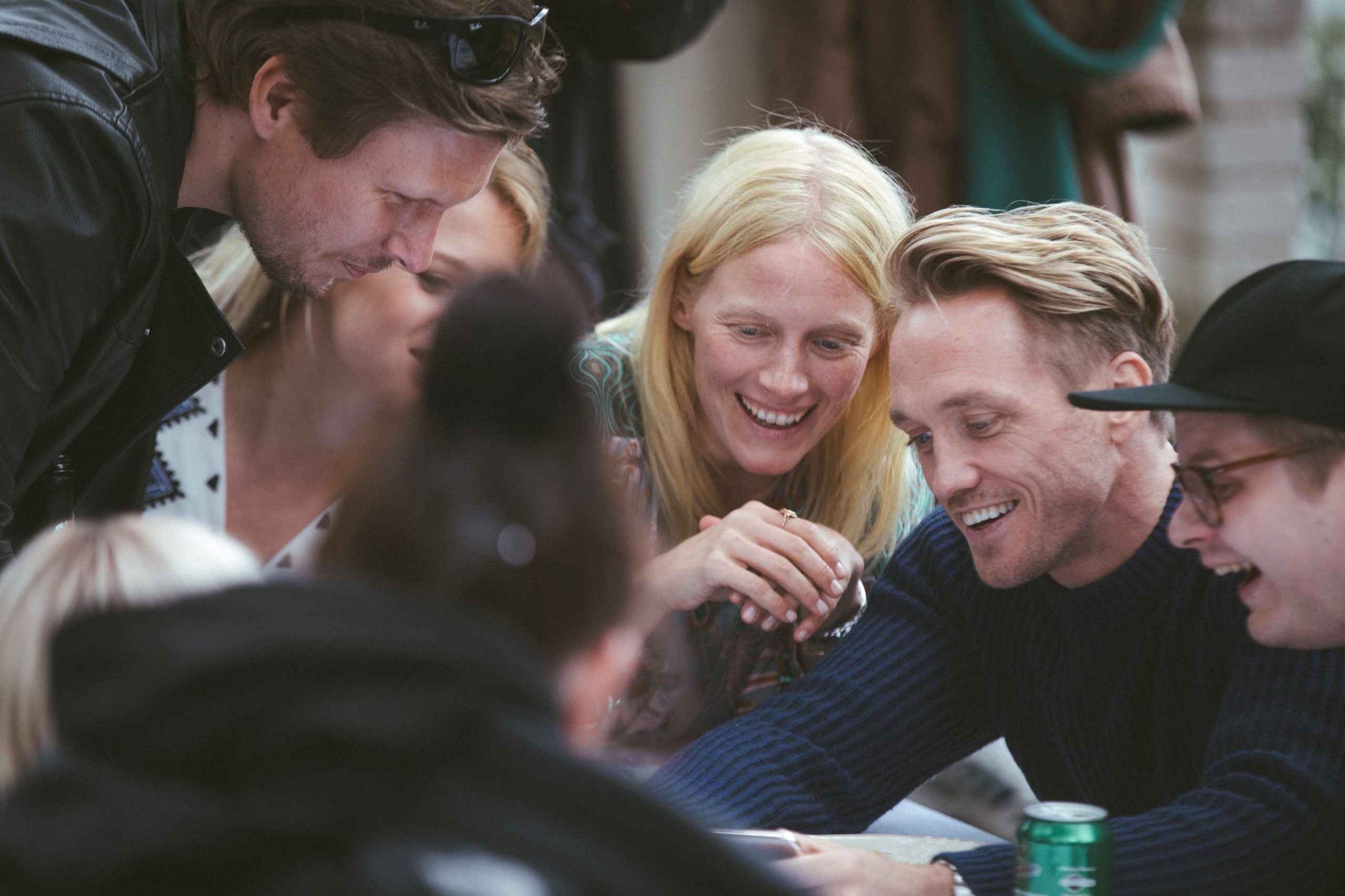
Written by Marta Bałaga
Finnish screenwriter-turned-director, and co-founder of Tuffi Films, talks about her feature debut Games People Play: about a group of long-time friends reuniting for a summer weekend, about to premiere at Göteborg Film Festival.
Marta Bałaga: Having seen your short films, I can still recognise you in Games People Play. Did you always want to choose this story for your feature debut?
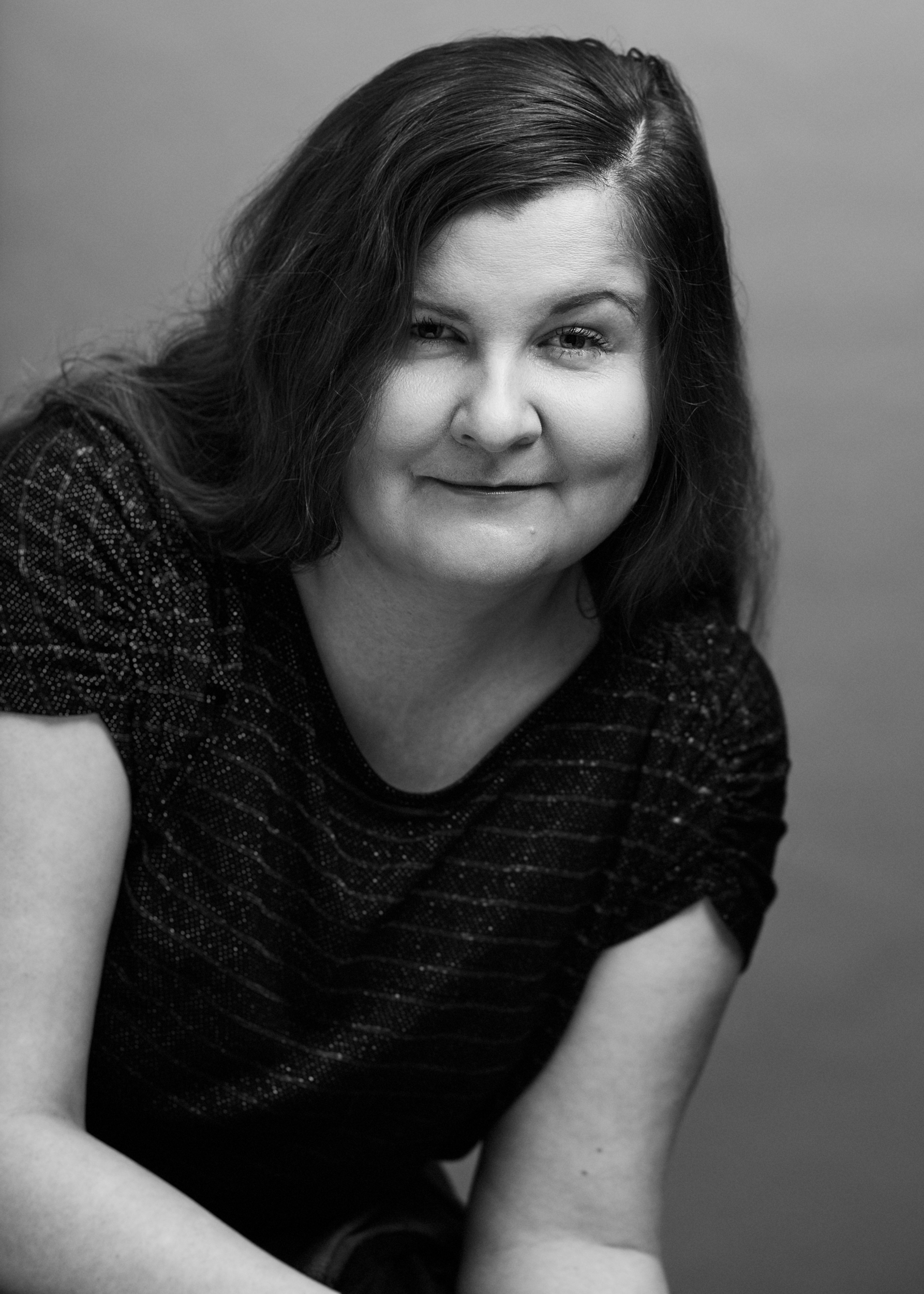
Jenni Toivoniemi: I started to think about it already 10 years ago, when I was still in school. I made an identically named exercise [Seurapeli] and some of these elements were already there. I just had this idea of making a film about a group of old friends: the odd dynamic between these people, a certain sense of stagnation. Of course, now it’s a bit crueller, because I show people who are much older and yet most of them are still stuck. Once you think about it, it’s really a bit sad.
Films about old friends coming together for one reason or other constitute their own genre. Take all The Big Chills or St. Elmo’s Fires.
I loved The Big Chill as a kid; I loved Robert Altman movies. But I always felt like these ensemble films must be really difficult to make, with all these different characters. There is always one that doesn’t really feel like an actual person. So of course I wanted to challenge myself.
I was developing it at a screenwriting workshop in Mexico called Cine Qua Non Lab, and my tutor Brendan N. Ward gave me this book one day, saying: “It’s not very good, but there are some chapters you should probably take a look at.” It helped me a bit, even though I didn’t agree with everything, or actually most of what it said. It claimed, for example, that so-called “reunion films” shouldn’t have more than six characters, or you will never make it work. Clearly, I didn’t take that advice [laughter].
You always seem very interested in what happens when you get a group of different people together – even in your earlier shorts. But how do you develop these dialogues to make them feel spontaneous?
I tried to get the actors involved quite early on. They already knew the first draft, we did two or three workshops and then literally worked on the scenes together. I would explain to them what it is that I would like to see happen. There are some improvised lines in the film, but not too many – sometimes it was important for them to be said exactly the way I wrote it. After all, these are “my” people. I know how they talk.
Would you say that you are generally very protective of what you write? I heard that in the case of the Coen brothers, everything needs to stay the same. Including all the “uhms” and “ahs”.
I come from a writing background, so I would say that my approach is script-based. But in this film, for example, the most important thing was to make sure it has a pulse. These dialogues needed to feel like it just happened, not like it was written. It’s a bit contradictory, isn’t it? Wanting to write every single line very precisely and then making sure it doesn’t feel like it at all. When you work with good actors, and take some time to prepare, then you can be open for their suggestions later on. Once the basic work is done, everyone is free to contribute.
There is a lot of warmth in the film, even though they are so cruel sometimes. How did you try to keep that balance, making sure that after the storm dies down at the end of the day there is still some friendship intact?
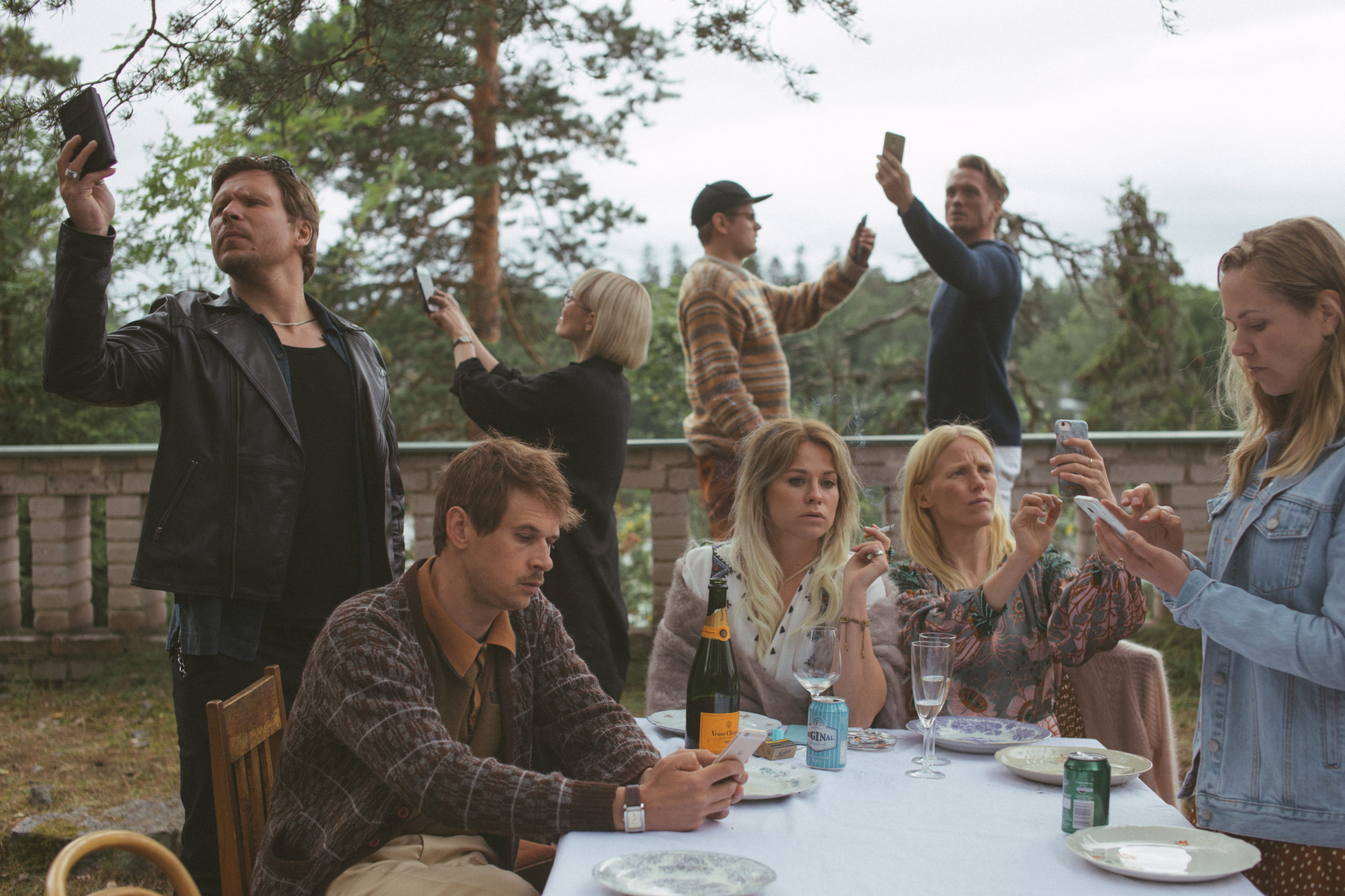
It was very important. That being said, when you are making films about people of privilege, like us, it’s crucial to be brutally honest. You can’t pamper them, as we can all be pretty terrible and narcissistic at times. But it doesn’t mean we don’t have feelings! I knew that this film needed to go back and forth: be tender and cruel, tender and cruel, and so on.
For me, such close-knit groups of friends become your family at one point. You spend decades together and sometimes you start to think that you wouldn’t necessarily choose them now. But it’s too late – they are your people! Being around them can be so exhausting, especially when alcohol is involved. You regress to the person you were back then, when you first met, as if no time has passed at all. When I was still in the process of writing, sometimes I would hear: “That’s it. They will never go back to being friends anymore.” No! That’s not the story I wanted to tell! They can be horrible to each other, sure, but there is a strong bond that keeps them together.
But Mitzi [played by Emmi Parviainen], whose birthday they celebrate, is not from a privileged background. Is that why you wanted to include that information? To change their dynamic a bit?
I come from a similar background myself, and what was beautiful about growing up in Finland was that people from very different worlds could easily become friends. At least that’s what I have experienced. I come from a working class family and then, before you know it, you end up at lavish parties in these huge houses with people who actually have maids – it’s not something you can possibly relate to. I imagine it can be difficult in more class-based societies. So yes, I wanted to have a little bit of that in the film. Although Mitzi is not really working-class anymore, she has educated herself and “climbed the social ladder”, so to speak.
There was a moment when I started to feel a bit worried, realising I am basically making a film about white people on an island. But that was our reality back then. Luckily, now it has changed.
Games People Play is a universal story, but one that doesn’t shy away from some local humour. Mostly provided by the arrival of a tall, blond, almost stereotypical Swede [Christian Hillborg]. How much of that did you want to keep?
Of course it won’t translate the same way outside of Finland, but there is always this weird dynamic between certain countries. And Finns always feel like underdogs when they are around Swedes, so it was fun to suddenly have this God-like guy come over and complicate things. But they do break him in the end [laughter].
One of the reasons why I do what I do comes from the fact that my family used to move a lot. I was always the new girl in class. That was my childhood, spent on observing these different group dynamics. I like to take on this anthropological gaze, take a step back and look at how we behave as human beings. More often than not, it tends to be rather absurd.
All your films could be described as social experiments of some kind. What would happen if we would put three people in front of a dancer who was supposed to deliver a sculpture, like in The Committee? What would happen if someone would be accused of sexual misconduct in the middle of a drunken office party, like in Festive Spirit? Whatever the outcome, you seem to remain sympathetic.
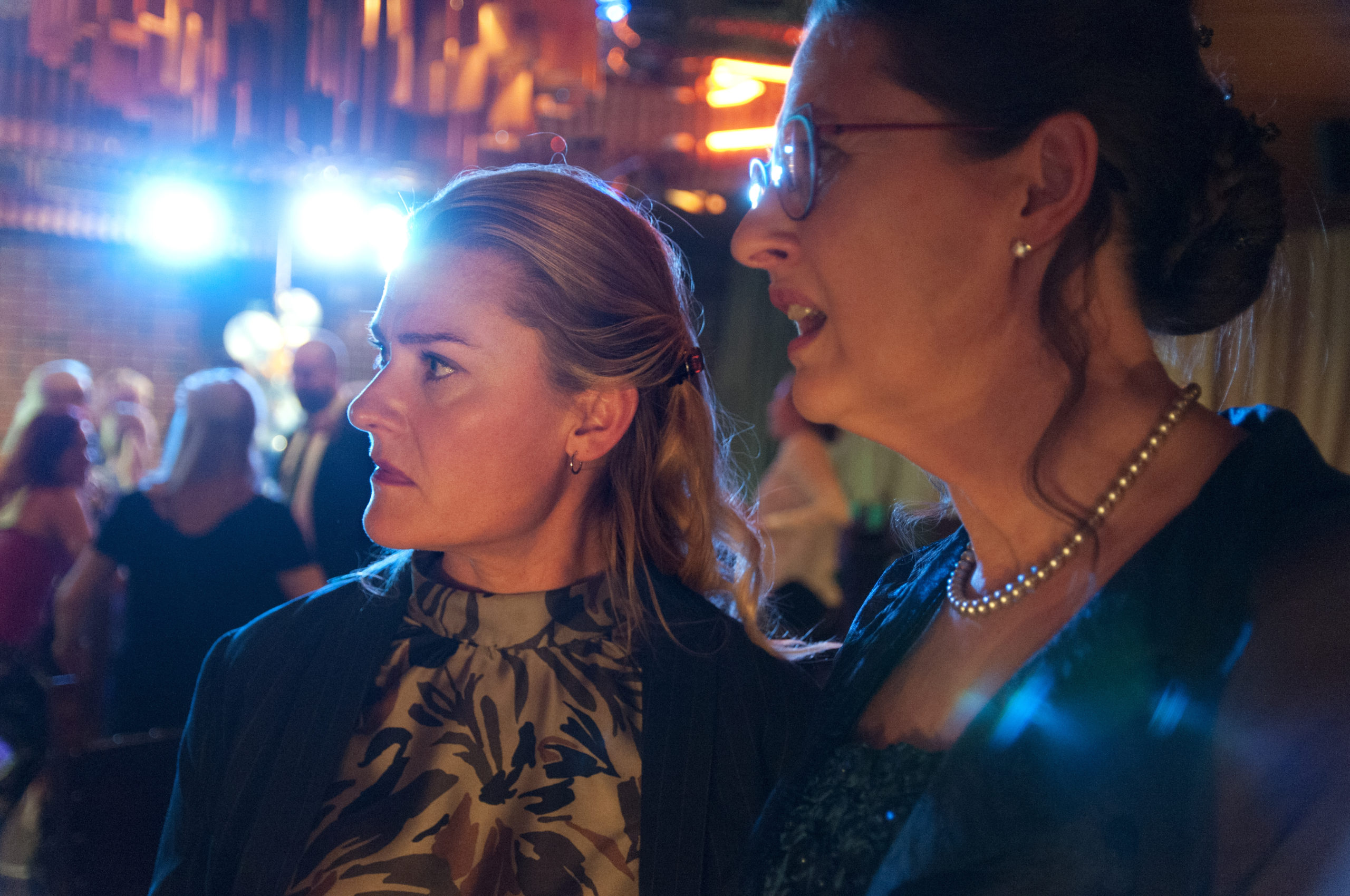
I think I always try to walk towards the light, at least when it’s possible. I am not the most optimistic person by nature, but I do practice it. I also try to have some compassion towards these people, all of them. In my stories I want to dig deep into the ugliness, but I think it’s way too easy to just show the grim side of things. There is a place for very dark films and I love some of them, but when you decide to make something like that, you really need to know why. Why do I have to show it? What is the reason for making everyone around me feel horrible?
There is this line in Games People Play: “If only you would have the vagina to face your emotions.” Which made me think of the #MeToo film anthology Force of Habit, which you co-created.
[Filmmakers] Elli Toivoniemi and Kirsikka Saari were the main operators behind that project. We actually started to develop it one year before the #MeToo movement started. Then again, #MeToo didn’t come out of nothing, so it was already very much in the air and we talked about these issues a lot. It seemed like a perfect excuse to do something with people we would like to collaborate with in the future.
At first, we would just invite them all in, give them beer and hummus, and work around the themes of how power is used, especially when it comes to the female body. Everybody had so much to say and we shared a lot of stories. My short film [Festive Spirit] came about relatively late. It was the last one we wrote into it. I wanted to show my frustration at all the discussions I have been having with people, also online, at listening to all these jokes. And how absurd it can be to question and accuse the person who shared what happened to her, with her being in the same room. How all these uncomfortable feelings we don’t want to deal with can easily turn into a lack of empathy.
A few years ago, in one of the interviews you said you don’t really like to be active on social media, that you would rather avoid it if you could. Do you think it’s necessary now, especially for a female director?
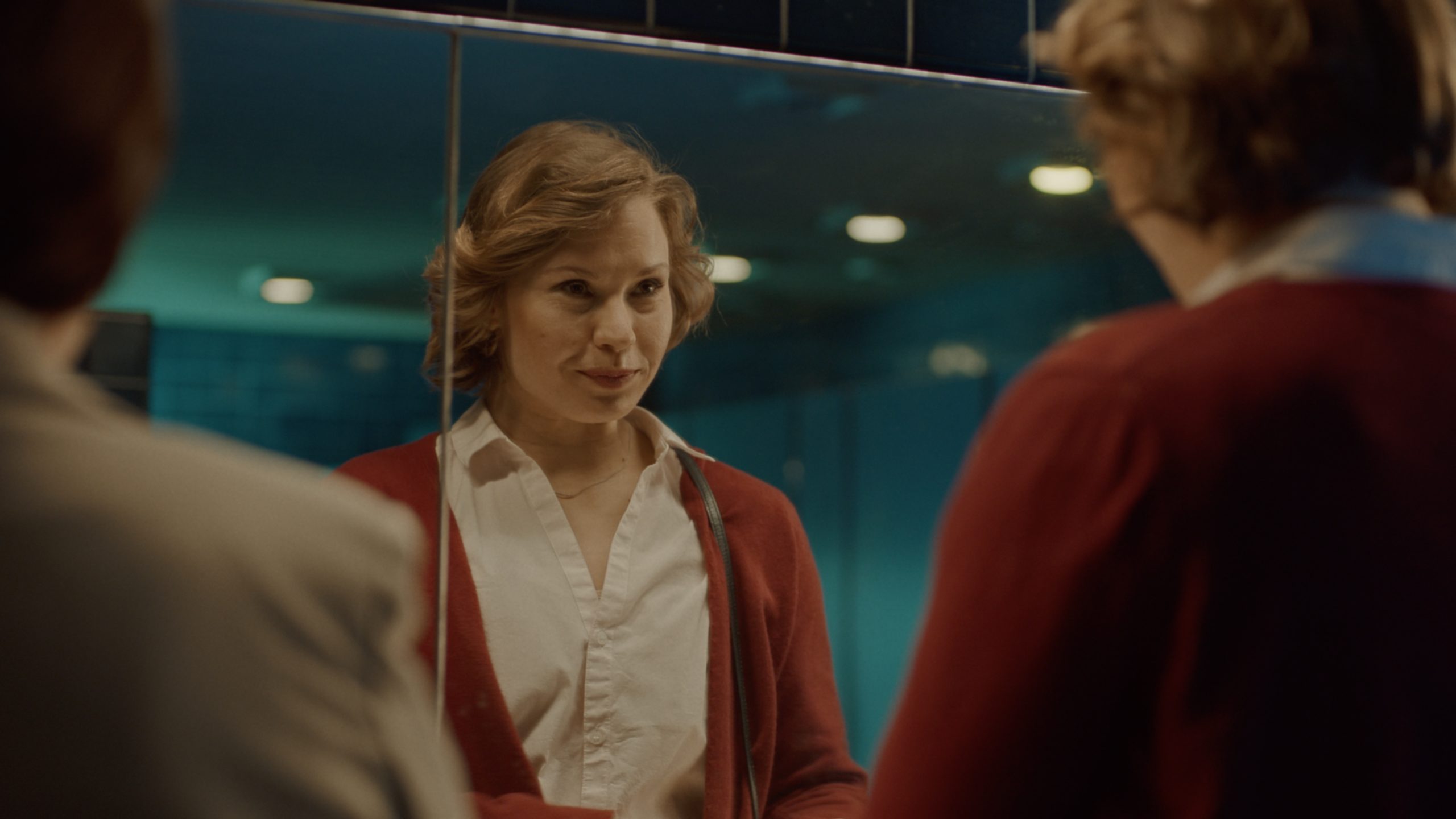
I am still not a big fan. I don’t do Twitter and I am crap at Instagram. I feel guilty sometimes about not exposing myself to all these online discussions, I have a lot of respect and admiration for the activists that do and get all this hate in return – especially women. The concept of Twitter is a nightmare to me – this idea that I say something and then it’s taken out of context. I wouldn’t be able to sleep at night, not that I get a lot of sleep anyway. You are encouraged to do that of course, and if you enjoy it I am sure it can be beneficial. But I hope I can have a career without it. Sometimes I take one for the team and try to engage, especially when I feel the person I am talking to is not just some troll. But compared to real conversation with people, there is only so much you can do online.
You mentioned before that you come from a writing background. How did it lead you to cinema?
Even at the very beginning, I was never going to be “just” a writer. Already as a 9-year-old, when asked about my future, I would say: “Well, I will have a farm. I will be a politician and a writer.”
At that point I didn’t even know about directors, but I would already direct my own plays in school. Very strange ones, so later on I understood why my teacher wasn’t exactly supportive. I had cowboys and can-can dancers, and I would play a cowboy picking up girls at the saloon – it must have been weird. I think I was a bit dominating as a kid. The idea of being just a writer, I don’t know – it just seemed a bit lonely and depressing. Very early on, I started to write with other people, and that’s the most fun thing ever. It’s so similar to child’s play. Maybe I got stuck in my childhood in a way.
When you did you first shorts as a director, do you remember what was the biggest struggle? Even though 2012 The Date immediately proved to be a huge success.
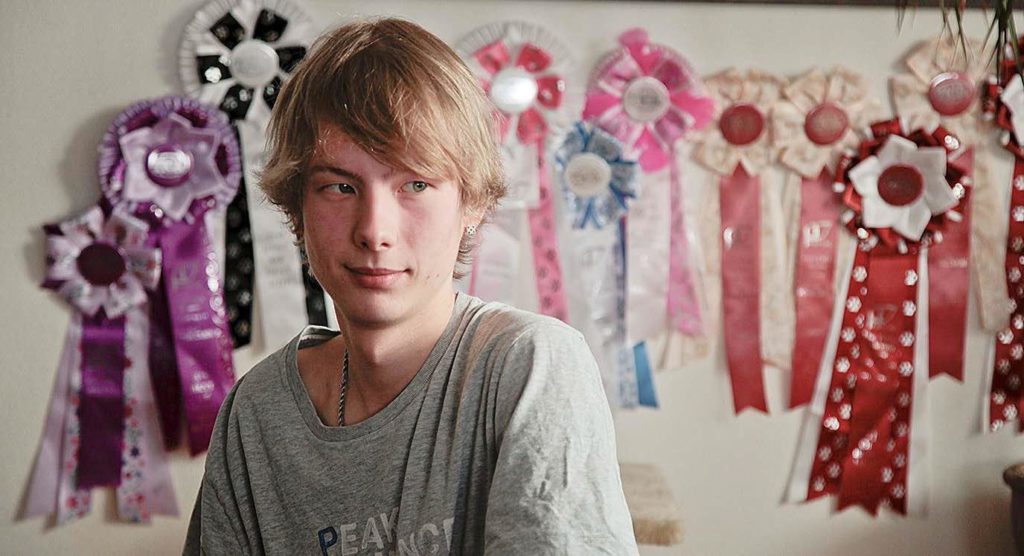
It was a bit terrifying, actually. It took me a long time to finally do it. Before, I was a “closeted” director. I would tell everyone I am just studying directing and doing all this in order to become a better writer. Of course, it wasn’t really true. And then, the very first film I directed, suddenly wins at Sundance [Jury Award in the International Short Film Competition]. It wasn’t a secret anymore.
But then I didn’t get funding for my next project, so I felt a bit stuck. I needed a safe space to practice and fine-tune what I wanted to do in the future, and this is where [our company] Tuffi Films, which also produced The Date, came in. That’s exactly how I see it – it’s a safe space. Without this support, it would have been so much more difficult to make Games People Play as a first-timer, especially the way I wanted. I think there is a lot of respect towards writing in this company, which isn’t always the case. If you don’t pay attention, this whole machinery can easily chew you up. So being a part of Tuffi Films, building it with these people helped me out a lot. Even though it has been quite a while since that win at Sundance!
I can see why you decided that Games People Play needed to be a feature. You really need some time to understand the complexity of all these relationships, don’t you?
You need these two hours, too. After The Date, everyone kept asking me if I would turn it into a feature. But can you imagine a feature about cat breeding? Now that would be a strange idea.
It’s the kind of humanism that’s very “me” in a way. I wanted to show all these things, all these layers. It’s funny because this kind of film, based on dialogue, is something that’s considered to be very un-Finnish. When I was first describing it to people they would say it sounds more like a French drama. Just because they all talk so much! It’s mostly because Aki Kaurismäki is the only Finnish director they have known for so long. I always rebel against the idea that a film is more stylish when your characters don’t speak that much.
You move the camera so much more than you did in your shorts. It makes you almost physically anxious at times.
I wanted to get this documentary-like feeling. Like you are actually there, with them. Of course I wasn’t going for a full-on Dogma style, it’s more peaceful than that. But this free-flowing sensation was crucial. I used two cameras in Festive Spirit as well, so that was something I wanted to try. I wanted to capture this feeling when you are at a really horrible party and there is just no escape.
And then with music, it’s mostly baroque. There is a certain Vanitas theme in the still life images we see in-between all the interactions. It’s a distancing element. You are there, with them, feeling all these intense feelings, and then musically you take a step back. It’s a bit like a court dance.
You reveal quite a lot about each and every one of these friends. Did you create any backstories too?
I did. I wrote everything. There were certain things I wanted the actors to know, in order to use it later during improvisation. But also, I just had to build the whole story – even just to show that there is this history and that they have known each other forever. At one point, somebody said to me: “It’s too much. Everyone has been with everybody!” But that’s the reality in my circles. And of course it’s too much. It’s uncomfortable for us all [laughter].
Every time I see these big, dramatic scenes or some emotional outburst in films, I get a bit worried. They can easily feel so fake, don’t you think? And yet you have never allowed yourself to be as emotional as you are here.
It has so much to do with preparing the actors and making sure that everyone is on the same page. There is nothing mystical about it – directing is all about the casting. Good actors, they immediately understand the right tone. They know when it goes too far. There are very emotional scenes here, so emotional they become ridiculous, but they are still true I hope. These people are pathetic! You are baring your soul to someone and then it’s done, back to normal.
Some time ago we run into each other at Olivia Wilde’s Booksmart screening. What is your take on this whole ‘female director’ debate? Is it something that still needs to be discussed?
It’s a pity that we still have to talk about it, no? It’s a pity that more hasn’t changed. But in Finland, some issues have been made more visible and you don’t really hear that “choosing quality over quantity” bullshit that often anymore.
It’s exhausting, going to all these seminars and talking about “how it feels to be a female director”. I just hope it’s not the only thing we get to talk about in the future. The problem is that when you fail, you fail as a woman. You are failing your entire gender – it’s ridiculous! Catwoman didn’t flop because it had a female action hero – it flopped because it was a shitty film! As of now, it’s still a rigged game. The feminist approach to filmmaking is sometimes misinterpreted as having to paint all women as these perfect beings. It’s not true – we just want to see imperfect, real characters on screen. In my film, women are just as horrible as the men. I am proud of it.
